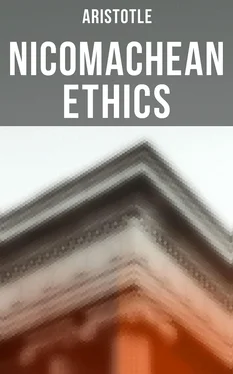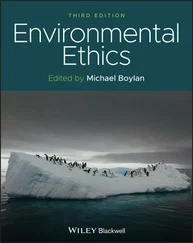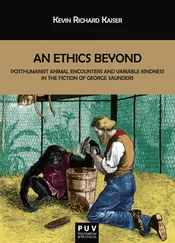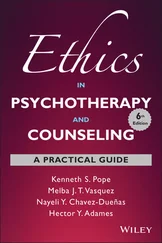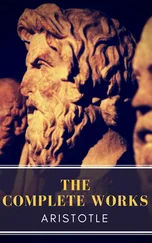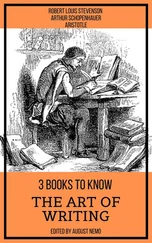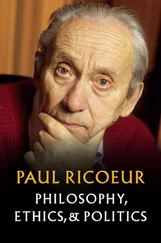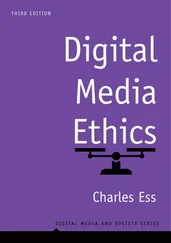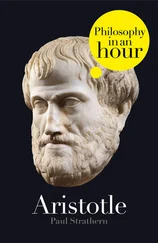Aristotle
Aristotle: Nicomachean Ethics
Complete Edition
Published by

Books
- Advanced Digital Solutions & High-Quality eBook Formatting -
musaicumbooks@okpublishing.info
2018 OK Publishing
ISBN 978-80-272-4458-4
Book One Book One Table of Contents
Book Two
Book Three
Book Four
Book Five
Book Six
Book Seven
Book Eight
Book Nine
Book Ten
Table of Contents Table of Contents Book One Book One Table of Contents Book Two Book Three Book Four Book Five Book Six Book Seven Book Eight Book Nine Book Ten
The Ethics of Aristotle is one half of a single treatise of which his Politics is the other half. Both deal with one and the same subject. This subject is what Aristotle calls in one place the "philosophy of human affairs;" but more frequently Political or Social Science. In the two works taken together we have their author's whole theory of human conduct or practical activity, that is, of all human activity which is not directed merely to knowledge or truth. The two parts of this treatise are mutually complementary, but in a literary sense each is independent and self-contained. The proem to the Ethics is an introduction to the whole subject, not merely to the first part; the last chapter of the Ethics points forward to the Politics , and sketches for that part of the treatise the order of enquiry to be pursued (an order which in the actual treatise is not adhered to).
The principle of distribution of the subject-matter between the two works is far from obvious, and has been much debated. Not much can be gathered from their titles, which in any case were not given to them by their author. Nor do these titles suggest any very compact unity in the works to which they are applied: the plural forms, which survive so oddly in English (Ethic s , Politic s ), were intended to indicate the treatment within a single work of a group of connected questions. The unity of the first group arises from their centring round the topic of character, that of the second from their connection with the existence and life of the city or state. We have thus to regard the Ethics as dealing with one group of problems and the Politics with a second, both falling within the wide compass of Political Science. Each of these groups falls into sub-groups which roughly correspond to the several books in each work. The tendency to take up one by one the various problems which had suggested themselves in the wide field obscures both the unity of the subject-matter and its proper articulation. But it is to be remembered that what is offered us is avowedly rather an enquiry than an exposition of hard and fast doctrine.
Nevertheless each work aims at a relative completeness, and it is important to observe the relation of each to the other. The distinction is not that the one treats of Moral and the other of Political Philosophy, nor again that the one deals with the moral activity of the individual and the other with that of the State, nor once more that the one gives us the theory of human conduct, while the other discusses its application in practice, though not all of these misinterpretations are equally erroneous. The clue to the right interpretation is given by Aristotle himself, where in the last chapter of the Ethics he is paving the way for the Politics . In the Ethics he has not confined himself to the abstract or isolated individual, but has always thought of him, or we might say, in his social and political context, with a given nature due to race and heredity and in certain surroundings. So viewing him he has studied the nature and formation of his character—all that he can make himself or be made by others to be. Especially he has investigated the various admirable forms of human character and the mode of their production. But all this, though it brings more clearly before us what goodness or virtue is, and how it is to be reached, remains mere theory or talk. By itself it does not enable us to become, or to help others to become, good. For this it is necessary to bring into play the great force of the Political Community or State, of which the main instrument is Law. Hence arises the demand for the necessary complement to the Ethics , i.e. , a treatise devoted to the questions which centre round the enquiry; by what organisation of social or political forces, by what laws or institutions can we best secure the greatest amount of good character?
We must, however, remember that the production of good character is not the end of either individual or state action: that is the aim of the one and the other because good character is the indispensable condition and chief determinant of happiness, itself the goal of all human doing. The end of all action, individual or collective, is the greatest happiness of the greatest number. There is, Aristotle insists, no difference of kind between the good of one and the good of many or all. The sole difference is one of amount or scale. This does not mean simply that the State exists to secure in larger measure the objects of degree which the isolated individual attempts, but is too feeble, to secure without it. On the contrary, it rather insists that whatever goods society alone enables a man to secure have always had to the individual—whether he realised it or not—the value which, when so secured, he recognises them to possess. The best and happiest life for the individual is that which the State renders possible, and this it does mainly by revealing to him the value of new objects of desire and educating him to appreciate them. To Aristotle or to Plato the State is, above all, a large and powerful educative agency which gives the individual increased opportunities of self-development and greater capacities for the enjoyment of life.
Looking forward, then, to the life of the State as that which aids support, and combines the efforts of the individual to obtain happiness, Aristotle draws no hard and fast distinction between the spheres of action of Man as individual and Man as citizen. Nor does the division of his discussion into the Ethics and the Politics rest upon any such distinction. The distinction implied is rather between two stages in the life of the civilised man—the stage of preparation for the full life of the adult citizen, and the stage of the actual exercise or enjoyment of citizenship. Hence the Ethics , where his attention is directed upon the formation of character, is largely and centrally a treatise on Moral Education. It discusses especially those admirable human qualities which fit a man for life in an organised civic community, which makes him "a good citizen," and considers how they can be fostered or created and their opposites prevented.
This is the kernel of the Ethics , and all the rest is subordinate to this main interest and purpose. Yet "the rest" is not irrelevant; the whole situation in which character grows and operates is concretely conceived. There is a basis of what we should call Psychology, sketched in firm outlines, the deeper presuppositions and the wider issues of human character and conduct are not ignored, and there is no little of what we should call Metaphysics. But neither the Psychology nor the Metaphysics is elaborated, and only so much is brought forward as appears necessary to put the main facts in their proper perspective and setting. It is this combination of width of outlook with close observation of the concrete facts of conduct which gives its abiding value to the work, and justifies the view of it as containing Aristotle's Moral Philosophy. Nor is it important merely as summing up the moral judgments and speculations of an age now long past. It seizes and dwells upon those elements and features in human practice which are most essential and permanent, and it is small wonder that so much in it survives in our own ways of regarding conduct and speaking of it. Thus it still remains one of the classics of Moral Philosophy, nor is its value likely soon to be exhausted.
Читать дальше
